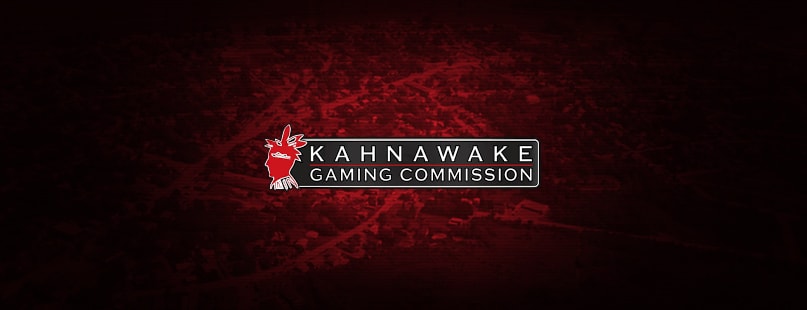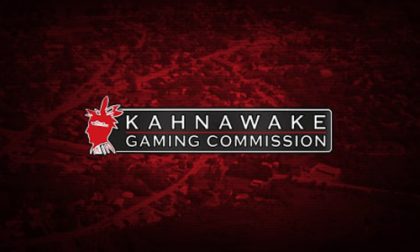The Weird “Rise and Fall of Kahnawake” Affiliate Advertorial
Once in a while an online-gambling feature splashes across Google’s search rankings that, upon deeper examination, makes no sense at all. In a recent instance, a weirdly skewed op-ed titled “The Rise and Fall of Kahnawake and the Future of Online Gambling in Canada” appeared on The Montreal Times a few days ago, and I’ve been puzzling it out ever since.
As someone who is well versed in the UltimateBet and Absolute Poker insider cheating scandals and their ties to the Kahnawake online-gaming operations, I always have interest in reading anything new that turns up along these lines. And this piece offered a very real slice of seeming truth in its headline. The Kahnawake’s online-gaming operations, generally comprised of hosting facility Mohawk Internet Technologies and the regulatory-themed Kahnawake Gaming Commission, have indeed seen brighter days.
KGC and MIT and a couple of other related entities are located on the Kahnawake Reserve, just outside Montreal, and that location ties into the Kahnawake’s long marriage to online gambling. One of the largest data pipelines serving all of North America runs right through the Kahnawake tribal lands, long giving the nation the type of high-speed data access and service that was the envy of many other hosting services around the globe.
 The Kahnawake also served virtually all comers, this in the heyday of unlicensed offshore sites serving the US market. And a lot of that blew up as a result of the UB and AP cheating scandals, which I’ll return to in a bit. Along with a later agreement reached with the New Jersey Division of Gaming Enforcement, the Kahnawake were mostly forced to treat the US online-gambling market as a hands-off jurisdiction, meaning that offshore sites wishing to accept US customers have to look elsewhere for hosting services.
The Kahnawake also served virtually all comers, this in the heyday of unlicensed offshore sites serving the US market. And a lot of that blew up as a result of the UB and AP cheating scandals, which I’ll return to in a bit. Along with a later agreement reached with the New Jersey Division of Gaming Enforcement, the Kahnawake were mostly forced to treat the US online-gambling market as a hands-off jurisdiction, meaning that offshore sites wishing to accept US customers have to look elsewhere for hosting services.
That this would be the eventual outcome of the Kahnawake-v-US situation could have been writ in stone years ago; it was always going to work out that, flaps along the way such as the AP and UB scandals notwithstanding. Yet here comes this editorial in The Montreal Times — in the last days of 2018, no less — declaring that this was all a terrible decision by the Kahnawake and decrying the nation’s “hard line stance” about not serving the US.
What the everlovin’ fuck? Here’s a direct pull from the piece:
Hard Line Stance
The KGC’s tendency to swerve into hard line stances is probably the reason why it is now considered an obsolete gambling commission. A notable action from the KGC that began turning heads (and not in a good way, not really) was the 2009 Ultimate Bet cheating scandal. Tokwiro Enterprises was the affected gambling operator.
After a long investigation on the purported cheating carried out by Tokwiro Enterprises, the Kahnawake Gambling Commission enforced several sanctions on the Ultimate Bet casino website.
In addition to a commission fine amounting to $1,500,000, Tokwiro Enterprises was also ordered to return $22,000,000 to its players on the Ultimate Bet website. Regulatory measures have also been put into place to ensure that Tokwiro Enterprises will no longer be able to carry out any cheating against its players.
While seemingly helpful to consumers, the KGC’s hard line stance definitely has repercussions throughout the international gambling providers’ community, and this will have consequences through the years.
Since the First Nation lives as autonomously as possible, even the Quebec Superior Court refuses to intervene with the Kahnawake Gaming Law. In the 2007 case Horne vs. Kahnawake Gaming Commission, et.al, the Quebec Superior Court ruled that it found no reason to rule on the validity of the Kahnawake Gaming Law.
The Quebec Superior Court’s decision wholly favours the KGC, but we believe that it is another nail in KGC’s coffin, since the Horne vs. Kahnawake Gaming Commission, et.al case was about the commission’s refusal to issue Client Provider Authorizations. …
So, according to this op-ed, the KGC was wrong to come down on AP and UB and order the return of $22 million to players affected by the UB cheating, simply because the Kahnawake nation operated autonomously and legally didn’t have to. Tens of thousands of cheated players be damned, I guess.
Besides getting virtually all of the facts wrong, this line of thought shows such a lack of business morality that it just has to be called out. At this point I started scanning the piece, looking for a byline to see who barfed up this nonsense, but… nothing. This was clearly a plant of some form, but by who?
About six up-and-down searches of the thing later, I realized that the bottom graphic in the piece was a click-through banner from a Canada-based affiliate operation, and then the premise of the whole thing clicked into place as well. The affiliate (which shall go unnamed here but can easily be discerned) offers listings to a dozen or so online casinos, but none of them are Kahnawake-hosted operations. So all this, then, is a complaint piece from a Canadian affiliate that wants the entire online gambling world reverted to, say, 2005 or so, when KGC-regulated sites freely marketed their services to the US and hundreds of affiliate wannabes signed up to give this streaking online-gambling thing a go.
Good luck; that world ceased to exist over a decade ago. The greatest wonder of it all is how this weird time-capsule viewpoint actually managed to see the light of day, the semi-hidden affiliate banner included.
Yet since someone reading this will want to know exactly what’s wrong with the idea, and why this stuff cannot be, let me reprise the tale of what happened with the KGC and the AP/UB scandals. It wasn’t a “hard line stance” at all. It was, rather, the Kahnawake operation’s only way out, and at that point, it was more a matter of damage control for Kahnawake than anything else.
I know this because I lived and worked through the exposure of the scandals, including being in direct contact with one or two Kahnawake officials. The full extent of the Tokwiro Enterprises fraud wasn’t known then, of course. The version of the tale relayed in the blockquote above bears scant relation to the truth. UltimateBet and Absolute Poker were early into a long-scale merger process when the US’s UIGEA was signed, and Joe Tokwiro Norton, then and now an important Kahnawake official, agreed to create Tokwiro Enterprises and serve as the front man for the entire operation, for an upfront payment and an ongoing fee.
However, neither Tokwiro Enterprises nor Joe Norton ever paid a penny of that $22 million in ordered refunds or the $1.5 million “fine” — which was sort of a made-up thing to cover the KGC’s time and expense. All that money came from a dicey clawback move taken out of true UB parent Excapsa’s existing cash on hand. The hit Norton took was having his frontman role thoroughly exposed and losing his actor’s fee from then on.
Now, moving forward. The Kahnawake operation was a huge success for many years literally because of the nature of the early internet gambling scene as being largely unregulated. Yet all new markets eventually are reined in by regulation, and there was nothing unusual or exceptional in seeing that occur with online gambling, despite the easy cross-border capabilities of the internet itself. Anyone who truly believes that the way the Kahnawake machine worked in 2004 would be the template for global success in 2019 is either fooling themselves or literally had no clue. I’m looking at you, too-clever-by-half Canadian affiliate operation. Not that the gambling biz hasn’t had experience with planted op-eds that caused some problems after the fact, no matter how righteous or well-intentioned.
The Kahnawake nation walked that regulated/unregulated tightrope as long as it could, but the UB and AP messes sent that virtual troupe tumbling. Yes, the KGC could have handled it a lot better; for instance, the claim of having shown the (never released) full investigative report to law enforcement officials was as farcical as a technical truth could be. The greater truth, though, was that if it wasn’t the UB/AP explosion, something else as damaging to the old non-regulated way would have emerged soon enough. And the same decisions regarding the US market would have eventually played out, in essentially the same way.
Not knowing one’s past is a sure way to repeat the same old mistakes over and over again. Sometimes wisdom is just having a long memory, but there’s a good reason things are as they are today.




















COMMENTS